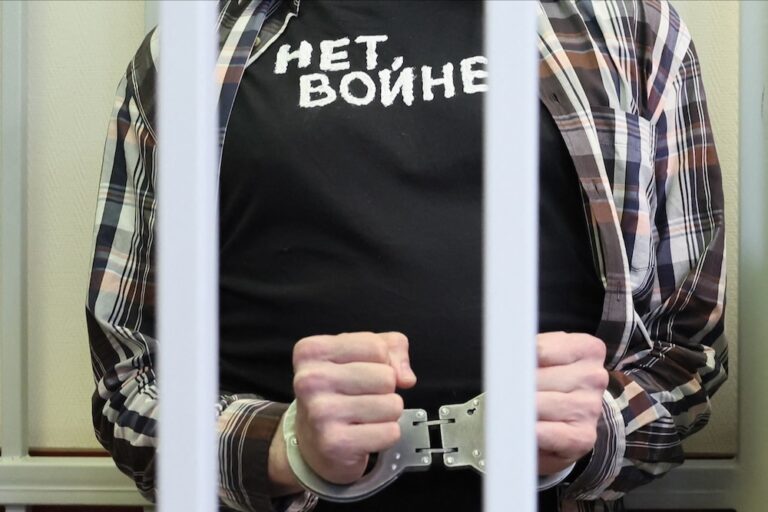The rights group is warning that a ban on "homosexual propaganda" in St. Petersburg is so broad that a person displaying a rainbow flag, wearing a T-shirt with a gay-friendly logo or holding a LGBT-themed rally could be prosecuted.
(Human Rights Watch/IFEX) – Moscow, June 2, 2012 – The European Union should raise concerns about human rights violations against lesbian, gay, bisexual, and transgender (LGBT) people with the Russian authorities during the EU-Russia Summit in St. Petersburg, Human Rights Watch said today.
The meeting, including President Vladimir Putin, is scheduled for June 3 and 4, 2012.
In March, a discriminatory ban on “homosexual propaganda” went into effect in St. Petersburg. Its language is so vague and broad that it could be applied to a person displaying a rainbow flag, wearing a T-shirt with a gay-friendly logo, or holding an LGBT-themed rally.
The law is contrary to Russia’s constitution and international human rights obligations, as it effectively deprives the local LGBT population and others of the fundamental right to free expression.
A proposed law similar to the St. Petersburg ban is being discussed in Russia’s national parliament, the Duma. Four other regions have passed similar laws.
“The ‘homosexual propaganda’ ban is nothing but a heinous attempt to silence St. Petersburg’s vibrant LGBT community,” said Boris Dittrich, LGBT advocacy director at Human Rights Watch. “EU representatives at the summit should directly express to President Putin their strong opposition to the law.”
The environment for LGBT people in Russia is very hostile, and LGBT activists are vulnerable to harassment and physical attack, Human Rights Watch said. The authorities routinely ban and violently disperse gay demonstrations. In October 2010 the European Court of Human Rights found Russia in violation of freedom of assembly for repeatedly denying activists the right to hold gay pride marches.
The European Court firmly rejected the Russian government’s argument that there was no general consensus on issues relating to the treatment of “sexual minorities.” The ruling stated that there is “no ambiguity” about “the right of individuals to openly identify themselves as gay, lesbian or any other sexual minority, and to promote their rights and freedoms, in particular by exercising their freedom of peaceful assembly.”
Russia is bound by the European Convention on Human Rights and the International Covenant on Civil and Political Rights, both of which ensure the right not to be discriminated against, and the rights to freedom of assembly, association, and expression. Russia also supported the March 2010 recommendations from the Committee of Ministers in the Council of Europe to end discrimination on the grounds of sexual orientation or gender identity. The document includes provisions for the right to freedom of assembly and freedom of expression without discrimination on grounds of sexual orientation or gender identity.


